Reading skills development Alphabet Worksheets for Ages 4-7
7 filtered results
-
From - To
Enhance your child's reading skills with our engaging Alphabet Worksheets designed for ages 4-7! These thoughtfully crafted resources make learning fun and interactive, helping young learners develop essential literacy skills. Each worksheet focuses on recognizing letters, understanding phonetics, and improving vocabulary through colorful illustrations and activities. Tailored to nurture a love for reading, our worksheets cater to various learning styles and support children in mastering the alphabet, preparing them for future success. Perfect for both home and classroom use, these printable resources are a wonderful tool to build confidence and ignite a passion for reading in your little ones!
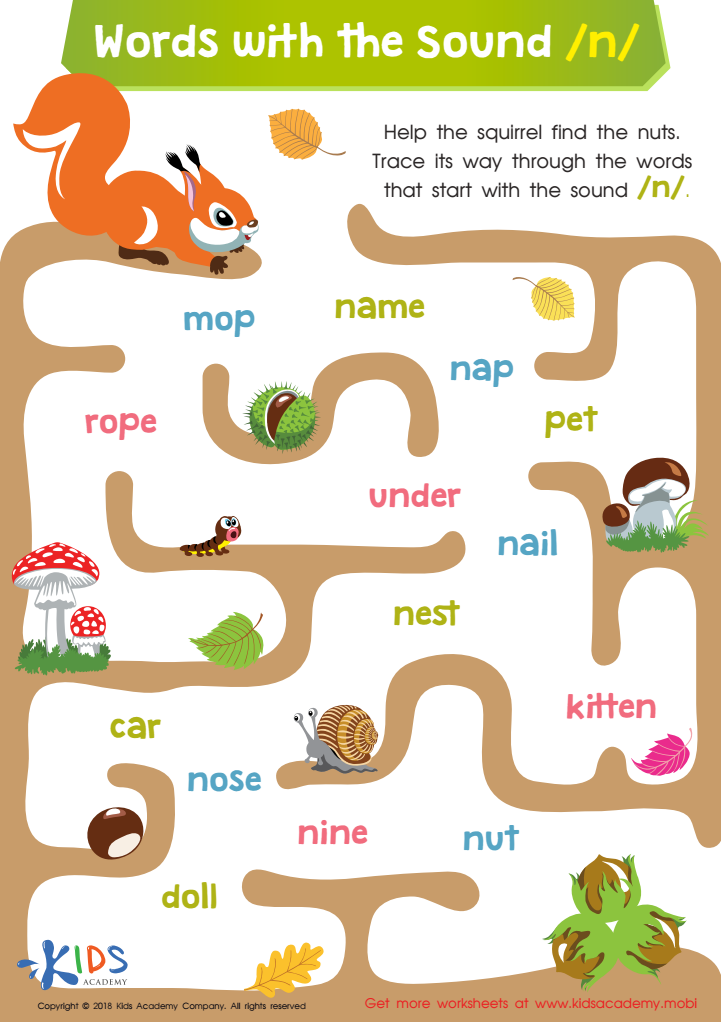

Words with Sound N Reading Worksheet
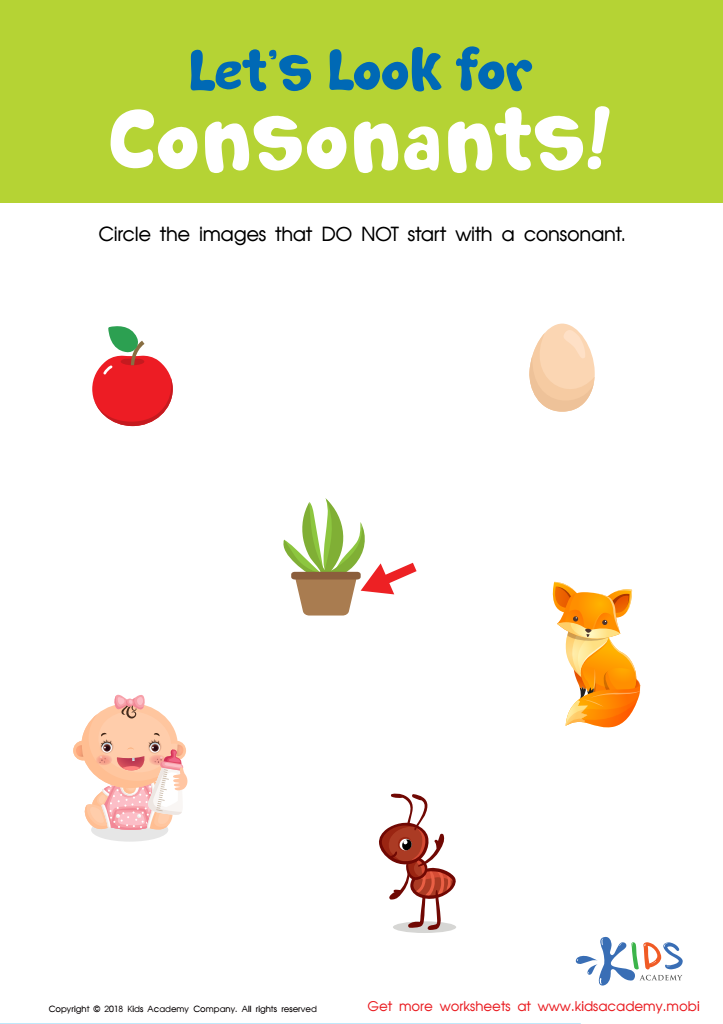

Let's Look for Consonants Worksheet
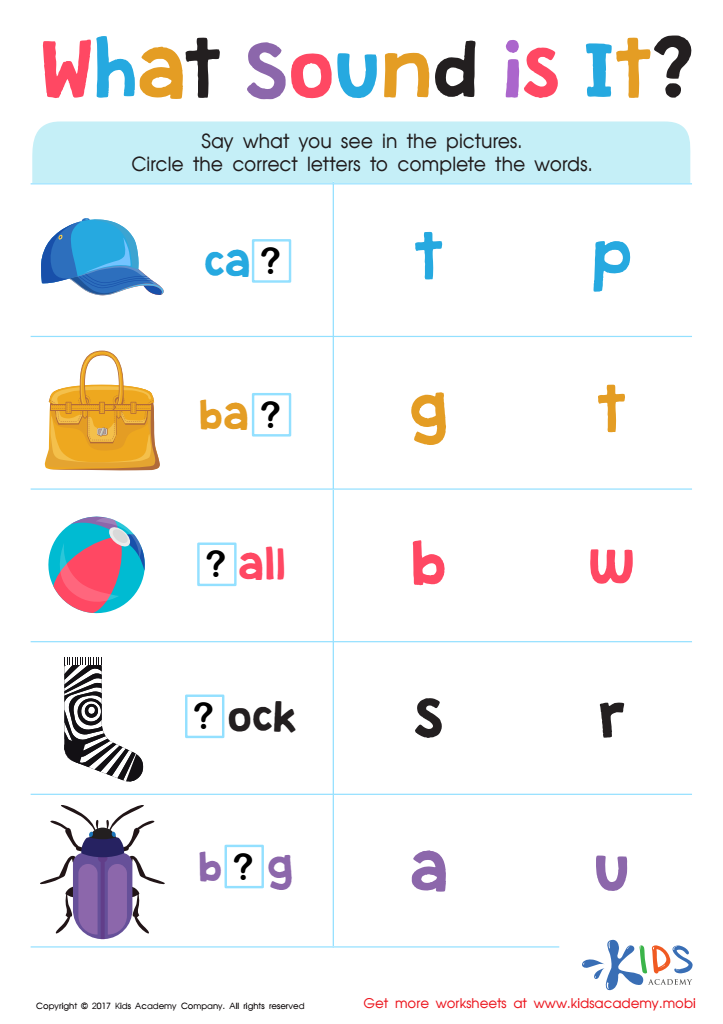

What Sound Is it? Worksheet
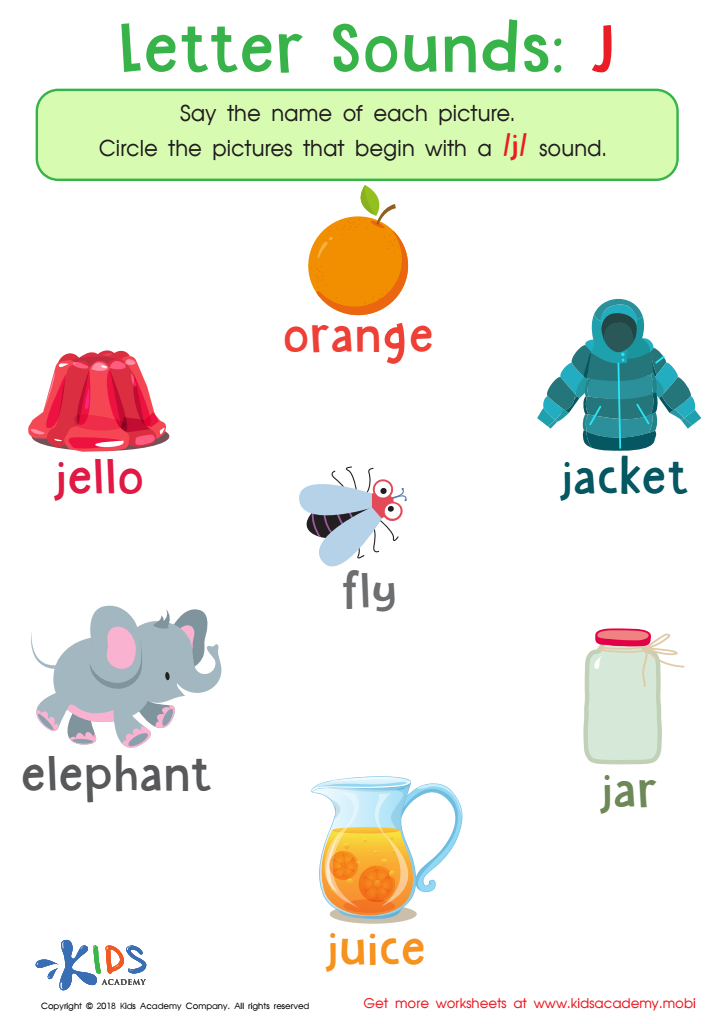

Letter Sounds: J Printable Worksheet
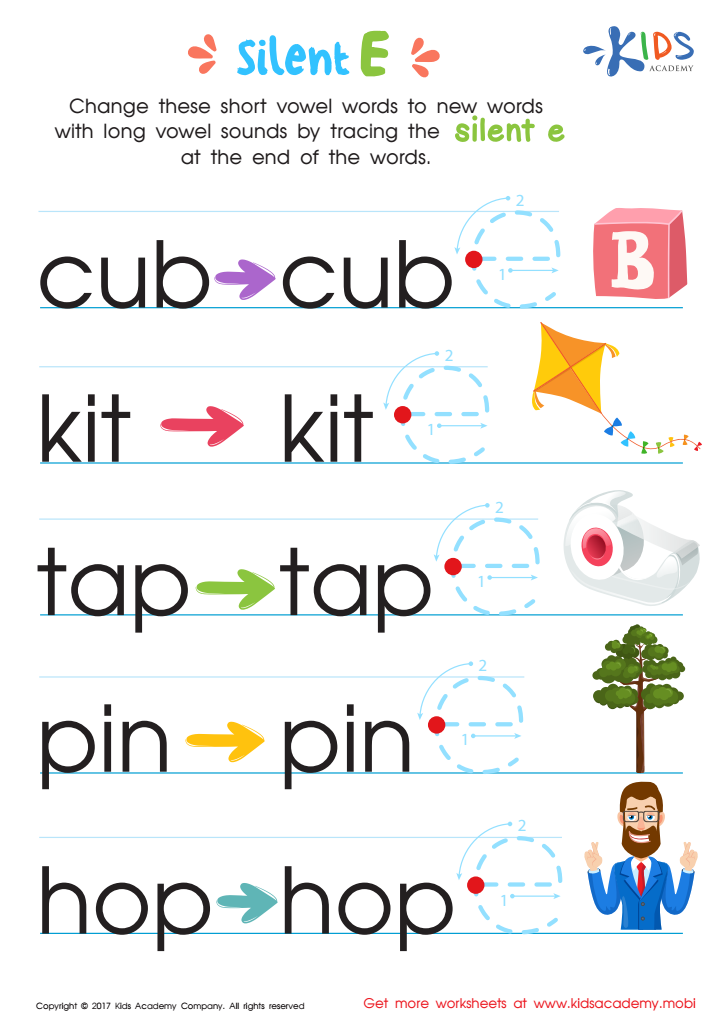

Silent E Words Worksheet
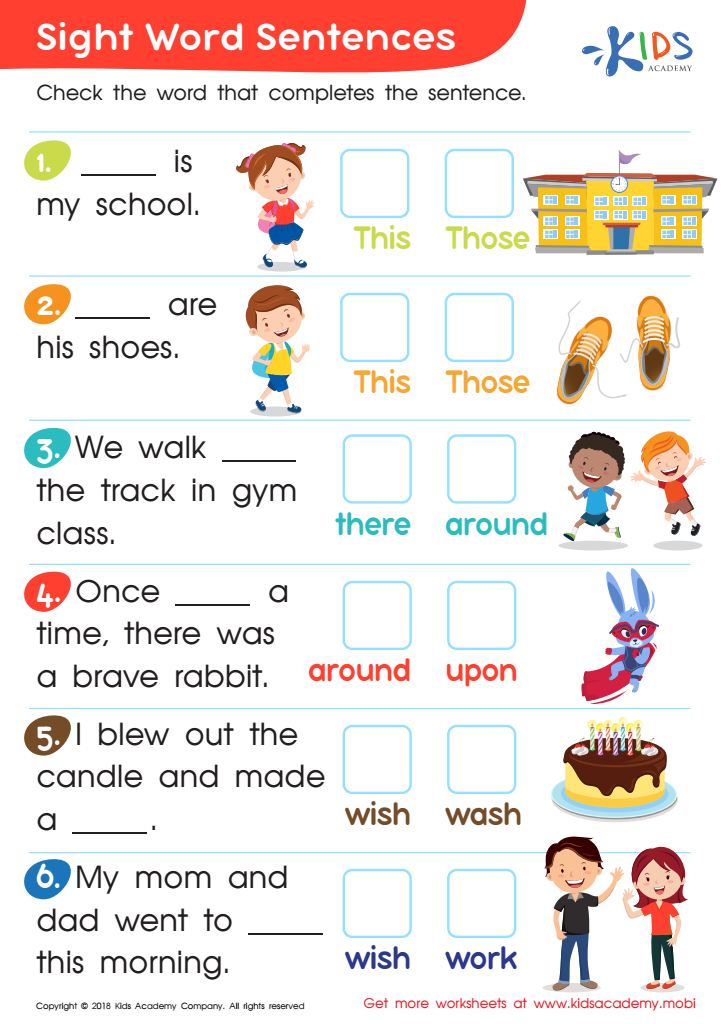

Sight Word Sentences Worksheet
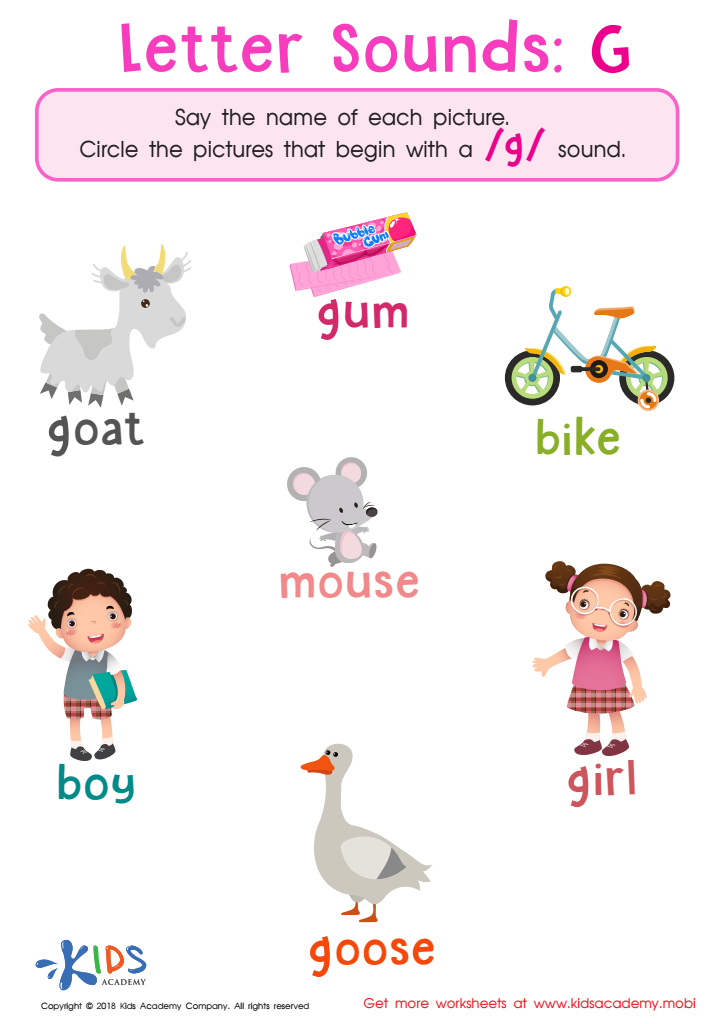

Letter G Sounds Worksheet
Parents and teachers should prioritize reading skills development, particularly understanding the alphabet, for children aged 4-7 because this foundational stage is crucial for future literacy and educational success. Mastering the alphabet equips young learners with the basic building blocks of reading and writing, fostering confidence in their abilities. Recognizing letters and their corresponding sounds allows children to decode words, leading to improved reading comprehension.
At this age, kids are naturally curious and eager to explore language, making it an ideal time for structured alphabet activities. Engaging children through fun and interactive methods—such as songs, games, and storytelling—creates enjoyable learning experiences that promote retention and enjoyment of reading.
Additionally, early reading skills can significantly impact academic performance later in life. Studies show that strong literacy skills acquired in early childhood are linked to better outcomes in education and increased opportunities in the future. Furthermore, literacy encourages language development and critical thinking skills, essential components in a child’s overall cognitive growth.
By investing time and resources into developing reading skills and alphabet knowledge, parents and teachers lay the groundwork for a lifelong love of reading and learning, setting children on a path to success.
 Assign to My Students
Assign to My Students




















